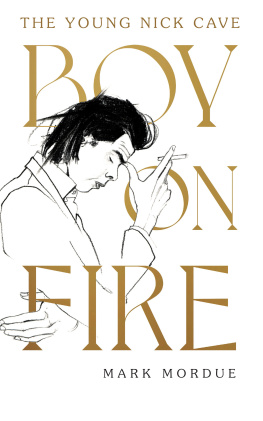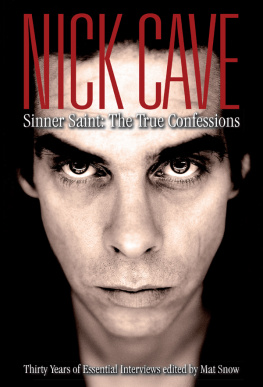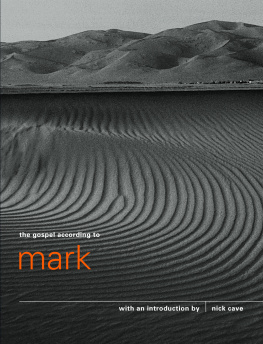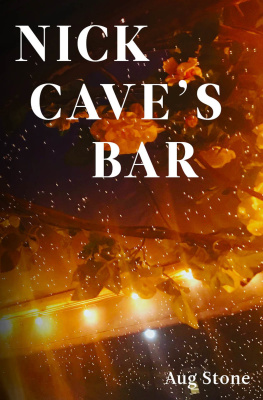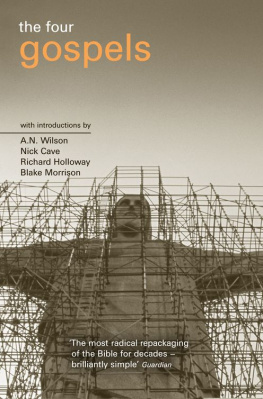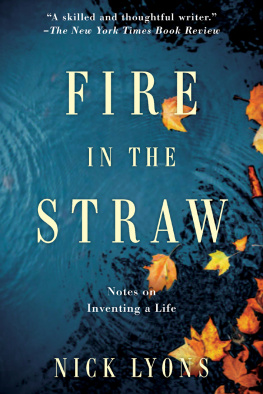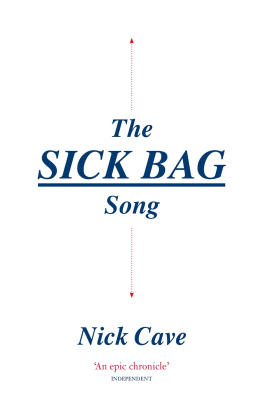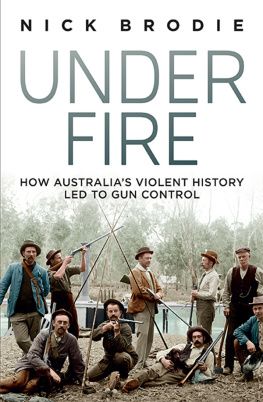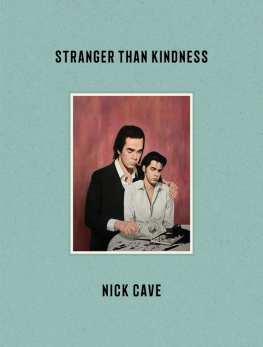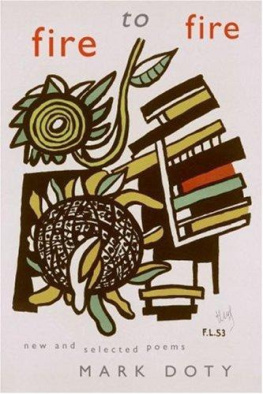Mark Mordue - Boy On Fire: The Young Nick Cave
Here you can read online Mark Mordue - Boy On Fire: The Young Nick Cave full text of the book (entire story) in english for free. Download pdf and epub, get meaning, cover and reviews about this ebook. year: 2020, publisher: 4th Estate, genre: Detective and thriller. Description of the work, (preface) as well as reviews are available. Best literature library LitArk.com created for fans of good reading and offers a wide selection of genres:
Romance novel
Science fiction
Adventure
Detective
Science
History
Home and family
Prose
Art
Politics
Computer
Non-fiction
Religion
Business
Children
Humor
Choose a favorite category and find really read worthwhile books. Enjoy immersion in the world of imagination, feel the emotions of the characters or learn something new for yourself, make an fascinating discovery.
- Book:Boy On Fire: The Young Nick Cave
- Author:
- Publisher:4th Estate
- Genre:
- Year:2020
- Rating:5 / 5
- Favourites:Add to favourites
- Your mark:
- 100
- 1
- 2
- 3
- 4
- 5
Boy On Fire: The Young Nick Cave: summary, description and annotation
We offer to read an annotation, description, summary or preface (depends on what the author of the book "Boy On Fire: The Young Nick Cave" wrote himself). If you haven't found the necessary information about the book — write in the comments, we will try to find it.
Boy On Fire: The Young Nick Cave — read online for free the complete book (whole text) full work
Below is the text of the book, divided by pages. System saving the place of the last page read, allows you to conveniently read the book "Boy On Fire: The Young Nick Cave" online for free, without having to search again every time where you left off. Put a bookmark, and you can go to the page where you finished reading at any time.
Font size:
Interval:
Bookmark:
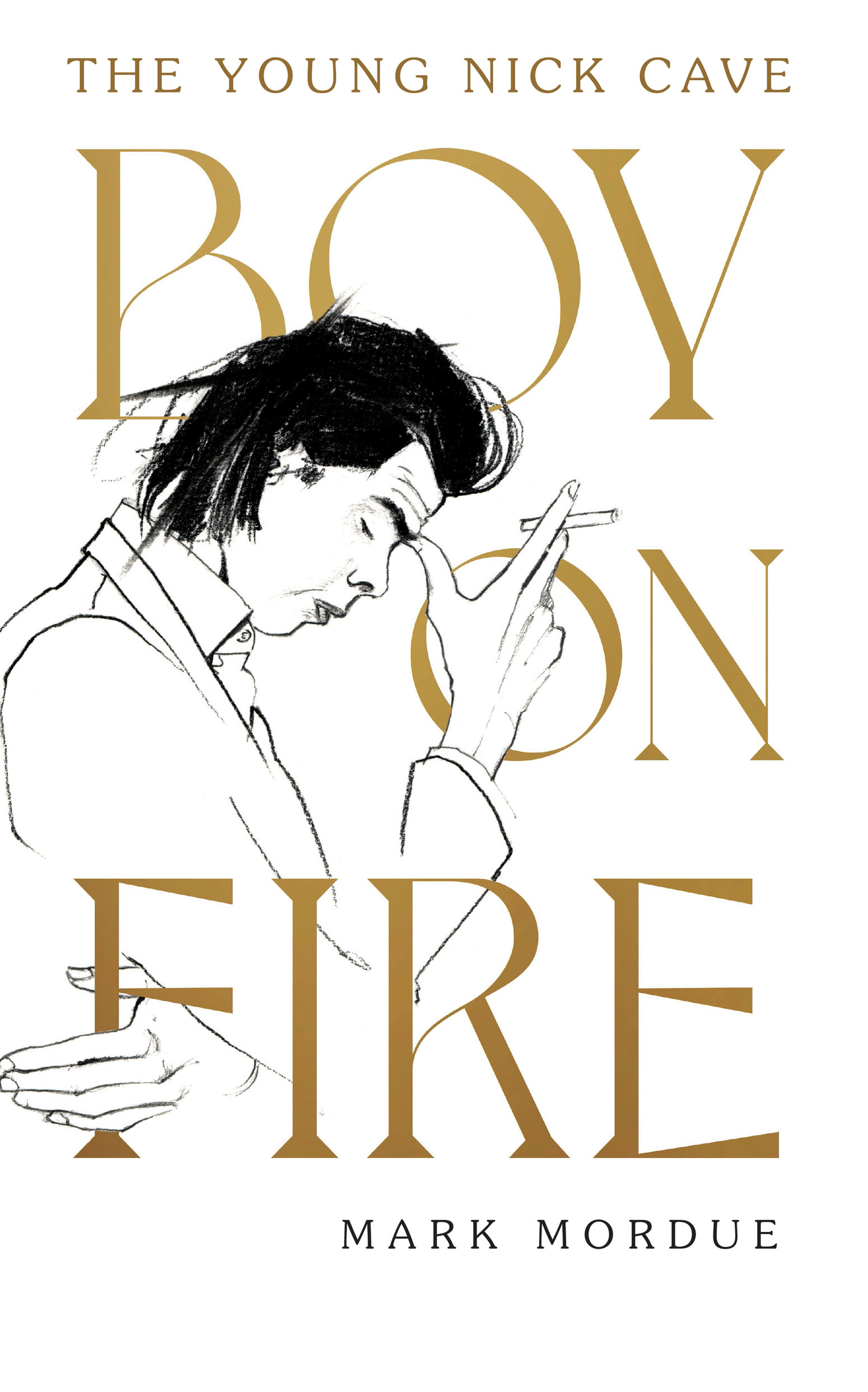
For my children,
Atticus, Franny and Levon
And for Bryan Wellington,
Anne Shannon and Eddie Baumgarten,
and all the boys and girls next door
At the end of it all, it was difficult to decide which was the more romantic, the more exciting: the real man or the myth he has become.
Colin F Cave, Ned Kelly: Man and Myth
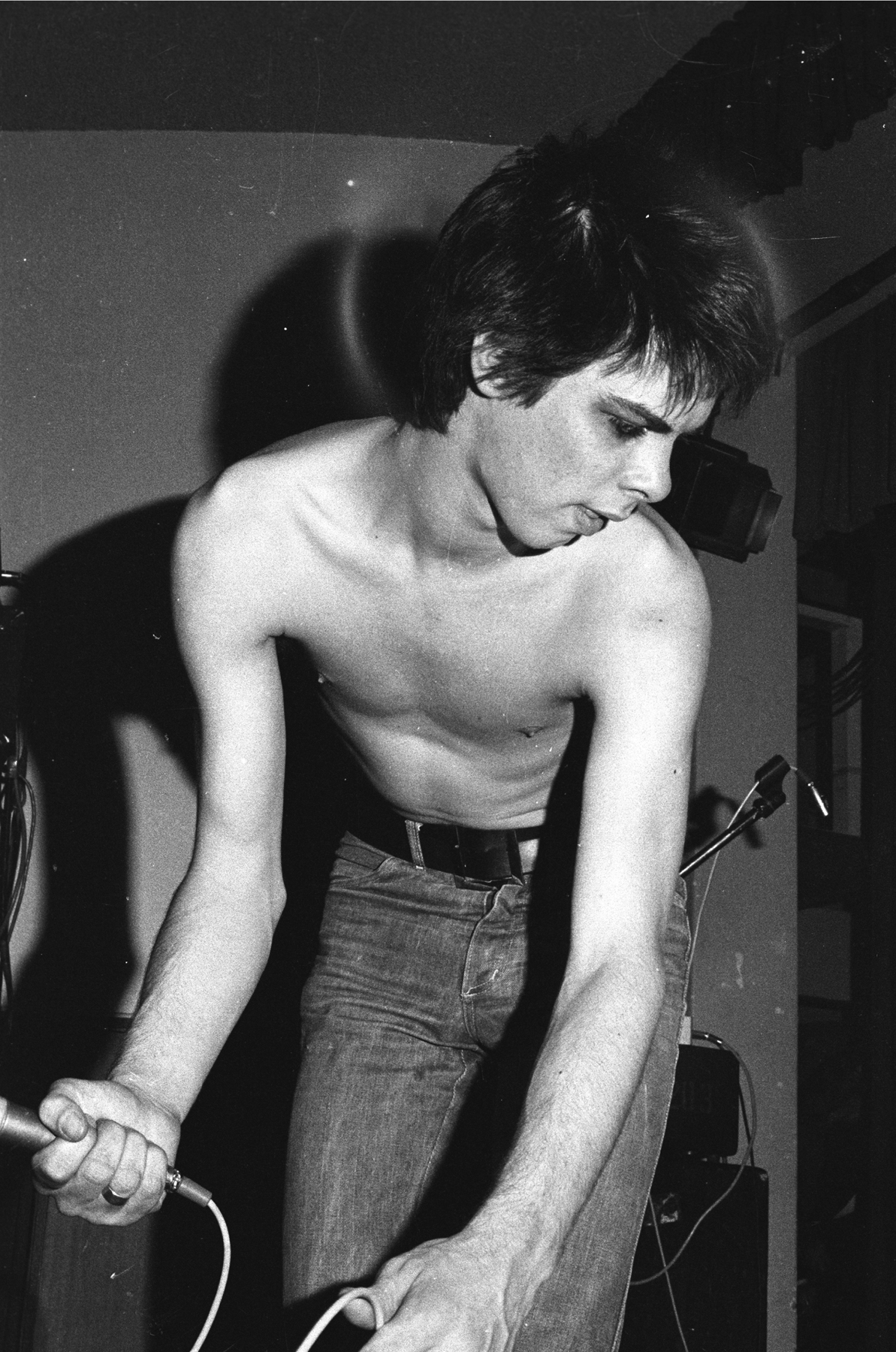
Nick Cave singing Im Eighteen, Boys Next Door gig, Swinburne College, 1977 (Peter Milne)
Q uotes by Nick Cave are from interviews and phone conversations between us from 2010 to 2018. These are used throughout the text and without endnotes unless additional context is required.
Interviews that occurred earlier with me over the course of Nick Caves career and published stories of mine about him and his work are referenced in the endnotes and acknowledgements.
Interviews I carried out with Nick Caves family, friends and peers along with material drawn from books, essays, articles and reviews, and Nick Caves own journals, notebooks and letters archived at The Arts Centre, Melbourne are referenced in endnotes.
In areas where published material and my own interviews overlap, I have chosen the more articulate version, and delineated between a published quote and an elaboration based on my own conversations. This was made easier by well-worn anecdotes, even the verbatim retelling of certain events.
I have tried to be wary of entrenched perceptions and their opposite, the elision or rewriting of history, in content or emotion, to fit with a new point of view. Certain truths, even facts, remain in the province of the group more than the individual. History is still alive to those who lived it.
Un pour tous, tous pour un
One for all, and all for one.
T he first time I ever spoke to Nick Cave was in a phone interview to promote his second solo album, The Firstborn Is Dead (1985), an ominous, blues-affected work that sanctified the birth of Elvis Presley and thereby rock n roll itself in quasi-religious, apocalyptic terms. Our conversation around the recording was as dry as spinifex, so slow and spacious it sometimes ceased to exist. As if Cave could not be less interested in what I was asking or saying and never would be. Given his notorious hatred of journalists back then, this made for an uphill experience. I put the phone down with sweating palms and a sinking feeling in my heart. What a failure.
Dealing with Cave again, let alone meeting him in person, was not something I looked forward to. In 1988 I nonetheless lobbied to interview Nick Cave for Sydneys On the Street. Second time lucky, I must have been hoping. Face to face he had to be more approachable than that distant voice on an echoing telephone line. Besides, he was the pre-eminent Australian rock n roll artist of his day. This made him hard to ignore.
Cave was in town to read from and preview a much anticipated literary work in progress, a book that would become known as And the Ass Saw the Angel (1989). Hed already gone so far as to declare himself more of a writer now
I was given a laneway address for a warehouse located directly behind Sydneys somewhat alternative and bohemian gay strip, Oxford Street. Cave was apparently holed up there with a girlfriend or a dealer or criminal acquaintance: rumours varied, depending who I spoke to. As always with Cave, rumours were all around him, as if his every movement across town were hotwired into the gossip chambers of inner-city Sydney conversation. The only other wave-making machine of this kind that I would ever know was Michael Hutchence. It was as if you could feel their presence rippling through the city from the moment their flight hit the tarmac and they entered, half in secret, into our closed little world.
When I knocked on the door of what looked like an old garage, a key was hurled to the road with a vaguely familiar shout hovering invisibly on the Sunday-afternoon air. As I let myself in, I heard footsteps on the wooden ceiling and the creak of a trapdoor above. At the top of the ladder-like stairs that rolled down to meet me with a thud there was now a hole in the ceiling where Nick Cave himself stood, bathed in backlight. He beckoned me upwards like some awful figure in a B-grade horror film about a journalist come to interview a terrifying rock n roll vampire. I gulped and set forth on my way to meet my Nosferatu.
Once I arrived upstairs, the atmosphere changed immediately. Cave was a solicitous host, while a young woman I took to be his partner bossed him about as if I had just entered a Goth version of the British comedy George and Mildred. Get Mark something to eat, Nick, she said briskly. A large serving of the very best fruits was put before me grapes, lychees, melon, apple all prepared and presented in a grand manner.
As Cave was about to seat himself and enjoy some of this banquet, his partner said, Did you offer Mark some coffee, Nick? Again he rose, mock lugubrious, stick-insect angular. He went over to an old metal funnel attached to a wooden workbench, poured in some coffee beans and began to slowly turn a handle: Grind, grind, grind, its the story of my life.
With a variety of expensive biscuits now also arrayed before me, I was soon thanking the couple for their surprising hospitality. Cave asked me why it should be so unexpected. An evasive answer seemed tactically unwise, so I mentioned the Prince of Darkness thing around him, and his reputation for treating journalists poorly. Who says that? he asked, a little surly. Why, the NME [New Musical Express]... I began to say, in reference to the influential British music paper of the day. The NME! he barked. Cave began to grind the coffee beans with much greater intensity. His partner looked at me and said, Dont get him started. To Cave she called out in a calming voice, Now, Nick... Cave ground on, taking it out on the beans: The NME!
Finally he came back over to us with a large silver coffee pot steaming with his efforts. A set of fine china cups were ready on a matching silver serving tray. Mid-pour, Cave lost focus, the coffee slowly streaming out of the spout and around but not into the cups in an ever-widening circle, the tray filling with black liquid as if it were a swimming pool, until he snapped back into consciousness and finally found the cups as well. Completing the task at last, Cave then asked me with all the decorum he could muster: Would you like milk or sugar with that?
The next two and a half hours felt rather like an interview taking place under similarly dark water. Each question seemed to demand huge reservoirs of concentration from Cave, not to mention frequent pauses and micro-sleeps. Caves sometimes thin and creaky, sometimes sonorous and self-consciously refined speaking voice certainly had its hypnotic qualities. I felt suspended, unsure of what to do, or even how to leave. To be honest, Im not sure the encounter ever quite ended so much as faded away. With everyone heavily relaxed, I departed once more through the floor.
It was yet another Cave interview in which I felt I had somehow failed, despite Caves very best efforts to help me. This was largely because I didnt really understand how to write up what had happened. I also dreaded sitting down and transcribing the interview tapes, a process that would demand even greater leagues of passing time from me all over again.
Font size:
Interval:
Bookmark:
Similar books «Boy On Fire: The Young Nick Cave»
Look at similar books to Boy On Fire: The Young Nick Cave. We have selected literature similar in name and meaning in the hope of providing readers with more options to find new, interesting, not yet read works.
Discussion, reviews of the book Boy On Fire: The Young Nick Cave and just readers' own opinions. Leave your comments, write what you think about the work, its meaning or the main characters. Specify what exactly you liked and what you didn't like, and why you think so.

